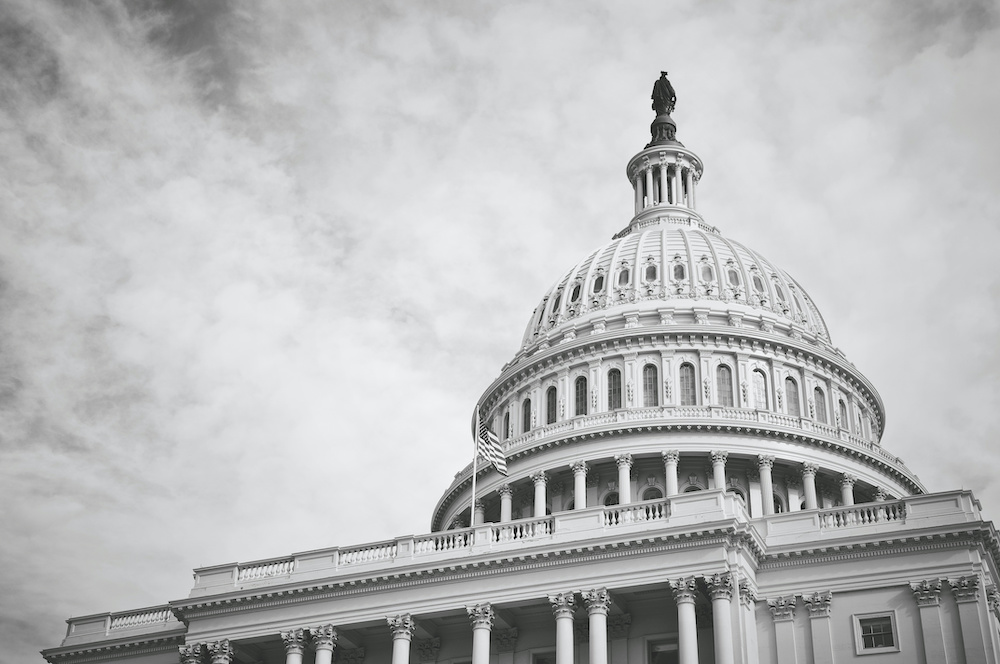
- Details
- By Native News Online Staff
New legislation that strikes down 11 outdated federal laws that discriminated against Native Americans was signed into law by President Biden on Tuesday, Dec. 27.
The Repealing Existing Substandard Provisions Encouraging Conciliation with Tribes (RESPECT) Act was first introduced in 2016 and is supported by the Great Plains Tribal Chairmen’s Association and the National Congress of American Indians (NCAI). It was co-sponsored by Senator Kevin Cramer (R-ND) and Senator Mike Rounds (R-SD).
Want more Native News? Get the free daily newsletter today.
Among the 11 laws the RESPECT Act strikes down are those that forged the path for Native children to be stripped from their families and placed in Indian Boarding Schools.
An investigative report released last May by the Department of the Interior as a part of the Federal Indian Boarding School Initiative found that, “federal Indian boarding school system deployed systematic militarized and identity-alteration methodologies in an attempt to assimilate American Indian, Alaska Native, and Native Hawaiian children.”
Survivors of the boarding school system report being subject to physical, sexual and psychological abuse. The DOI report cited more than 500 student deaths at Indian Boarding Schools, a figure that is expected to grow as research continues and mass graves are uncovered at boarding school sites.
“I’m grateful the RESPECT Act is now law,” Cramer said in a statement. “While these outdated laws were not being enforced … it’s right to officially strike them. This bill recognizes a devastating period in our history — one never to be repeated — and my hope is it will help heal wounds inflicted in the past as we focus on cultivating cooperative government-to-government relationships for the future.”
While each nullified law is more than 100 years old and no longer implemented, NCAI president Fawn Sharp emphasized that the legislation is a step forward to repairing relationships between sovereign tribal nations and the federal government.
“The National Congress of American Indians applauds the passage and signing into law of the Repealing Existing Substandard Provisions Encouraging Conciliation with Tribes Act,” NCAI President Fawn Sharp said in a statement. “While our history books often ignore the facts, it is no secret that for far too long, the U.S. Congress has passed destructive and oppressive laws that by design diminished tribal sovereignty and our political standing of equity and parity with the federal government. This legislation is but one more step in a very long journey ahead toward achieving our vision for a real, just, and meaningful government-to-government relationship between sovereign Tribal Nations and the United States.”
More Stories Like This
NCAI Passes Two Emergency Resolutions on Immigration Enforcement ActivitiesChickasaw Lighthorse Police Officer named Indian Country Law Enforcement Officer of the Year
Indian Gaming Association Rallies Broad Coalition Against Sports Event Contracts It Calls Illegal Threat to Tribal Sovereignty
Navajo Resources and Development Committee Issues Notice on Livestock Inspection Requirements
American Prairie, Tribal Coalition Files Protest Over Rescinded Grazing Rights
Help us defend tribal sovereignty.
At Native News Online, our mission is rooted in telling the stories that strengthen sovereignty and uplift Indigenous voices — not just at year’s end, but every single day.
Because of your generosity last year, we were able to keep our reporters on the ground in tribal communities, at national gatherings and in the halls of Congress — covering the issues that matter most to Indian Country: sovereignty, culture, education, health and economic opportunity.
That support sustained us through a tough year in 2025. Now, as we look to the year ahead, we need your help right now to ensure warrior journalism remains strong — reporting that defends tribal sovereignty, amplifies Native truth, and holds power accountable.
 The stakes couldn't be higher. Your support keeps Native voices heard, Native stories told and Native sovereignty defended.
The stakes couldn't be higher. Your support keeps Native voices heard, Native stories told and Native sovereignty defended.
Stand with Warrior Journalism today.
Levi Rickert (Potawatomi), Editor & Publisher

